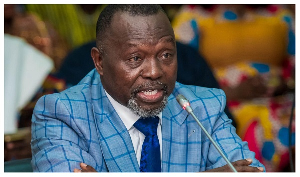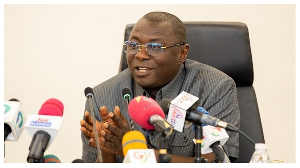In 2007, the Attorney General’s Ministry in active partnership with the Judicial Service of Ghana introduced the ‘Justice for All Programme-JFAP’, aimed at alleviating prison overcrowding by setting up special courts to adjudicate remand prisoner cases in prisons throughout the country.
The programme also seeks to promote respect for the rule of law and Human Rights by ensuring fair and expeditious trial for remand prisoners as enshrined in Article 14(4) of the 1992 Constitution of Ghana which declares that “a person who is arrested or detained (Remand), but has not received a trial within a ‘reasonable period of time’, is entitled to unconditional release or release subject to conditions necessary for reappearance for judicial proceedings.
Prison Population Trend-PPT
The issue of overcrowding and overstretched prison facilities is not new to us as a nation, yet since the introduction of the JFAP; there has been significant empirical evidence of its impact on the economic, social and human rights aspects of the economy. The population trend per the statistics as at November 2014 from the Ghana Prisons Service shows a growth rate of 53% before the JFAP and shows a reduction rate of 28.8% after.
The remand population which constituted 33% (4285) of the prison population (14,133) at the inauguration of the JFAP is now 21% (3051) of same. The number of prisoners in custody today on expired warrants is less than 20% of the remand population as against the over 75% rate at the inauguration of the JFAP. The Nsawam Medium Security Prison, which had a remand population of (1,658) representing 56% of entire inmates at the time of the inauguration of the JFAP, now has a remand population of 610 which makes up only 17.2% of the prison’s population.
Statistics from Special Court Sittings at 14 Prisons across the Country
As at December 2014, 2154 prisoners have been arraigned before the JFA Court in our prisons. Out of this figure….
Bail – 549
Discharged – 542
Convicted – 44
Dismissed, Refused/Struck out – 1019
Saving the task payer, GH?716,787.00 per annum on Prisons feeding cost
It is imperative to note that aside the psychological relief the court sitting in the prisons brings to the prisoner, the discharge of over thousand prisoners by the courts has saved the Government and for that matter the tax payer, GH?716,787.00 per annum on feeding cost alone.
The total number of both Bail (549) and Discharged prisoners (542) would sum up to a 1091. So if an amount of 1.80p is spent on every single prisoner per day that would add up to GH?1963.8 and multiplying that for one year would sum up to GH?716,787.00; Mathematically,
1.80p*1091*365= GH?716,787.00.
So if one takes into consideration the 8 years the JFA programme has ran and the above amount spent per annum on prisoners, then one could imagine the huge amount of money the JFAP had saved the tax payer over the period. To heighten the issue of overcrowded prisons, lengthy pre-trial detention (Remand) have greater implications on the health of the prisoners as well as socio-economic effects of the country.
WAY FORWARD…….
The introduction of non-custodial sentencing, long overdue, would help relieve the tax payer since this would help reduce prison population. It is highly recommended that, minor offenders be sentenced to community service, as a means of punishment rather than traditional custodial sentences.
An appeal has been made to the Chief Justice to provide an alternative avenue to inmates (convicts) who feel unduly denied of justice and do not have the requisite financial muscle to engage the services of a lawyer for appeal. Moreover, as per provisions made in the new sentencing guidelines, convicted prisoners serving sentences in contravention of the guidelines, could receive scaled down sentences, thereby leading to reduced prison numbers and curbing overcrowding. We acknowledge the newly established High Court at Nsawam Medium Security Prisons and ask for its expansion to other regions.
The POS Foundation, coordinators of the 2014 JFAP and currently facilitating the overall implementation of same acknowledge and revere the work of the Chief Justice and the Attorney General, the Police and the Prison Services in ensuring the success of the programme for the past eight(8) years. In the same breath it is very important to also mention the various donor agencies whose efforts and contributions had contributed to the promotion of the rights of the prisoners through JFAP; DANIDA, UNDP, USAID, Star Ghana, EU Commission, DFID. I would finally want to thank POS workers, Lawyers, GIMPA Faculty of Law and other NGOs who are working to improve the Criminal Justice System of the country.
By Jonathan Osei Owusu
posjonathan@gmail.com – 0244175879
Opinions of Thursday, 5 November 2015
Columnist: Jonathan Osei Owusu



















